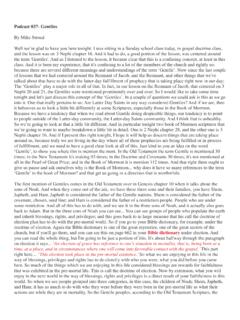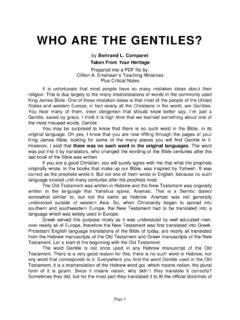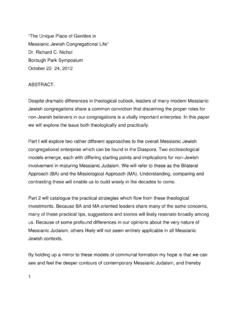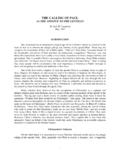Transcription of Gentile’s Taxonomy: Developing and Assessing Appropriate ...
1 Gentile s taxonomy : Developing and Assessing Appropriate Skill Progressions JONES, JACKSON, HARTMAN, & STANEC Designing Practice / Learning Environments (Adams, 1999) It is suggested that students should experience approximately 80% success. How do we create success for our students? o Modify skills for all levels (beginner, intermediate, advanced) Extensions - inviting students to perform variations that make the skill easier or harder. Challenges - giving a measurable task that focuses on mastery Choices- inviting students to become more actively engaged in the learning process via self-regulation. Gentile s taxonomy (2000) Every action we carry out it is a result of the complex interaction between the performer, task, and the environment Closed skills Highly Predictable Stable Environments Open skills Unpredictable Variable Environment Gentile s taxonomy (2000) Adapted from Magill (2007) Gentile's taxonomy : 4 Questions Environmental Context 1.
2 Is the environmental context ( , regulatory conditions) in-motion or stationary? 2. Does the skill change from trial-to-trial ( , intertrial variation)? Action Function 1. Does the performer move from one location to another while performing this skill ( , body transport)? 2. Does the performer manipulate an object in this task? Gentile s taxonomy : Flowchart Modified from Schmidt & Wrisberg (2008) How would you Juggling How would you Hitting a golf chip shot Basketball Lay-Up (with no defender) Basketball Lay-Up (with no defender) Football Pass (to a receiver) Football Pass (to a receiver) Volleyball Pass (off of a bump) Volleyball Pass (off of a bump) Why bother? How PE teachers might utilize the taxonomy ? To aid in IPP / IEP planning process Charting individual progress To help determine how to differentiate instruction (Individual and Class) Selecting a progression of functional Appropriate activities ( , continuum) Evaluation of movement capabilities and limitations ( , might alter unit plan).
3 Limitations / Considerations: Outcomes / Depends on the skills / progression is not always the route that it may seem. Teaching Games for Understanding the Model Learner 1. Game 2. Game Appreciation 3. Tactical Awareness 4. Making Appropriate Decisions 5. skills Execution 6. Performance Modification Rules, etc. Am I on the move or stationary? Ways of creating / denying space, etc. Are important environment elements moving or stationary? Context of Learner / Game. Closed - Open References Adams, (1999). Develop better motor skill progressions with Gentile's taxonomy of tasks. JOPERD, 70 (8), 35-38. Gentile, (2000). Skill acquisition: Action, movement, and neuromotor processes. In Carr & Shepard (Eds.), Movement Science: Foundations for Physical Therapy (2nd ed.)
4 , ). Rockville, MD: Aspen. Magill, (2007). Motor learning and control: Concepts and applications (8th ed.). McGraw-Hill: New York, NY. Schmidt, & Wrisberg, (2008). Motor learning and performance (4th ed.). Human Kinetics: Champaign, IL. Thank You and Questions JONES, JACKSON, HARTMAN, & STANEC











